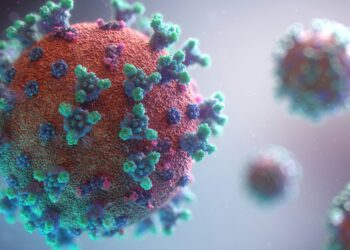You could try to fight off a sinus infection with endless treatment plans, only to feel worse with each passing day. Some treatment methods might seem like a quick fix, but not all of them are effective. Oftentimes, people who suffer from sinus infections, use antibiotics as a go-to cure. But the truth is, antibiotics are often unnecessary for most sinus infections. Some of these infections aren’t caused by bacteria, rather they’re caused by viruses which antibiotics can’t treat. In this article, we’re going to look at different treatment options for sinus infections.

How Do Doctors Figure Out If You Have a Sinus Infection?
First, the doctor will ask about your symptoms and how long you’ve been feeling congested for. Then, they’ll check your nose or face, and gently press on areas around your cheeks and forehead to see if they’re tender. The doctor will use a small light to look into your nose, in search of swelling, redness, or mucus.
During a nasal endoscopy, the doctor will get a closer look inside your nose and sinuses. They’ll use a thin, flexible tube with a tiny camera on the end, called an endoscope. The doctor will gently slide the endoscope into your nose. This may sound uncomfortable, but the area will be numb so you won’t feel any pain. The inserted camera will show a detailed view of what’s happening inside, like if there’s a blockage or anything unusual.
If your sinus infection seems complicated, the doctor will order a CT scan or MRI to get a super detailed picture of your sinuses. The CT scan will allow the doctor to see if there’s a blockage or even a deviated septum. While an MRI is used if the doctor suspects something more serious like a tumor or growth.
Treatment for Sinus Infection
The treatment of sinus infections first relieves the symptoms, then addresses the cause. There are a couple of medications that work that way.
Over-the-counter Medications: Medications like ibuprofen or acetaminophen help to reduce the pain and pressure in your face and head.
There are also medications that are decongestants that are available as pills or nasal sprays. Their work is to clear up nasal congestion. However, don’t use nasal sprays for more than three days in a row, because they can make your symptoms worse if you use them for too long.
Prescription Medications: If your sinus infection is caused by a bacteria not a virus, the doctor will prescribe antibiotics for you. Another medication is corticosteroids, which are stronger medications, often given as nasal sprays or pills. They help to reduce severe inflammation in the sinuses.
Home Remedies: One of the many home remedies you can try out is a warm compress. Place a warm towel on your face to ease the facial pain and loosen the mucus. Another remedy is a saline rinse. During a saline rinse, you’ll rinse your nasal passages with a saltwater solution to clear out mucus and allergens. Lastly, drink a lot of water to help thin out the mucus. Doing this will make it easier to drain mucus from the sinuses.
Conclusion
We mostly get infected because our body’s immune system is not strong enough to fight back. If you’re trying to prevent sinus infections, eat well, so your immune system has just the nutrients it needs to win the battle against infection. Also, get enough sleep to help your body stay strong and recover quickly.

















